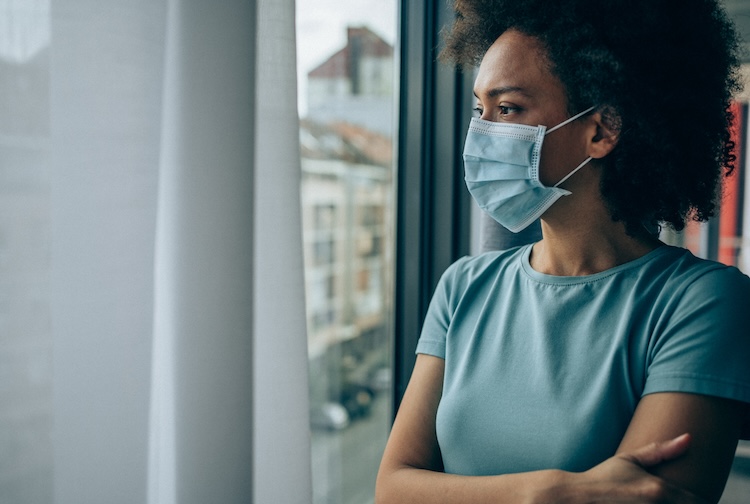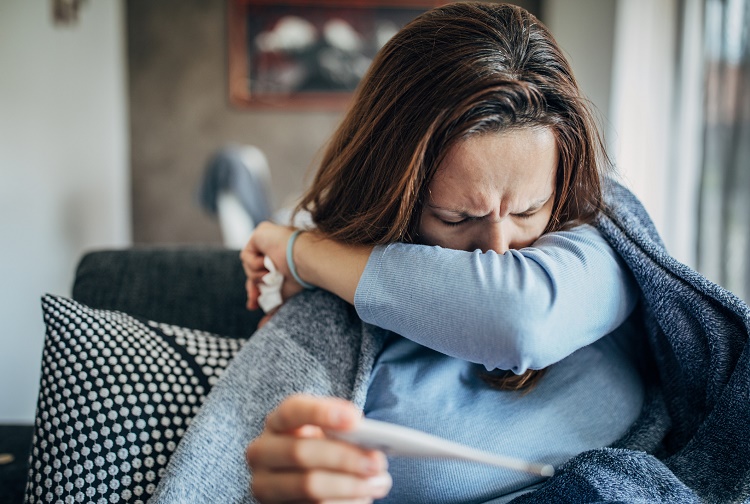
COVID-19 isolation guidelines may change soon
A VCU Health infectious disease expert shares what we currently know about the potential changes to COVID-19 isolation guidelines and how to prevent yourself from spreading the virus.
February 16, 2024 Changes may soon be coming to federal COVID-19 isolation guidelines. (Getty Images)
Changes may soon be coming to federal COVID-19 isolation guidelines. (Getty Images)
UPDATE (Monday, March 4, 2024): The Centers for Disease Control and Prevention issued new guidelines for COVID-19 isolation on March 1. The new guidelines drop the five day isolation period if an individual is fever-free for 24 hours and their symptoms are mild and improving. Stay up to date on the latest COVID-19 news with VCU Health News.
By Sara McCloskey
In the coming months, federal health guidelines for how long you are recommended to stay isolated and away from others after contracting COVID-19 may change.
A story from the Washington Post reports that the Centers for Disease Control and Prevention (CDC) addressed an upcoming change to isolation guidelines with state health officials during a recent briefing.
The new approach suggests people could return to work or school if they are fever-free for 24 hours without the assistance of medicine and their COVID-19 symptoms are mild and improving. Currently, the CDC guidelines call for people who test positive for COVID-19 to stay at home and away from others for five days. If someone doesn’t have symptoms after five days, they can stop isolating themselves.
“I think a lot of it has to do with trying to be practical, trying to come up with solutions that small businesses and other entities can follow,” said Barry Rittmann, M.D., co-medical director of the Virginia Infection Prevention Training Center and VCU Health infectious disease expert. “Certain professions may have different guidelines as well. So, we still need to see how [the CDC] handles guidelines for health care workers and other people who are in higher risk professions.”
Along with these new guidelines, there are still many things to consider to keep the ones around you and yourself safe from contracting this serious virus. Rittmann shared insights with VCU Health News on the new proposed guidelines and other preventative measures.
What do we know so far about the proposed changes to the CDC isolation guidelines?
The proposed guidelines have not been formally released to the public, so we don’t have the exact wording of the changes to isolation periods. These changes have been debated for some time, and appear to be more focused on practicality than anything else.
According to the news reports we’ve seen, the guidelines appear to only apply to the general public and not health care workers or medically vulnerable populations. It’s also not clear if the guidance will include updates on masking.
The proposed changes come after COVID-19 case numbers started to dip down following a surge around the winter holidays. Nothing has changed in the scientific understanding we have of the virus. It’s still highly contagious but we now have more methods to prevent severe illness and wide-reaching community spread.
What should I do if I need to isolate at home?
If you need to go into isolation after testing positive for COVID-19, stay home and do your best to stay away from others. Here are some other things to consider to prevent the spread of COVID-19 in your home:
- Try to improve the ventilation at your home by opening windows, increasing air filtration and turning on fans to increase airflow.
- Wear a high-quality mask if you need to be around others at home and in public.
- If you can, try to use a separate bathroom from other people in your household.
- Don’t share personal household items, such as cups, towels and utensils.
If I test positive for COVID-19, how can I prevent myself from spreading it to others?
Even if you might be feeling better after an initial infection, you might still be spreading COVID-19. If you’re still getting over the illness, wearing a mask can help prevent other people from getting sick.
Some other preventative measures that weren't available at the beginning of the pandemic really should be utilized as much as possible. That includes getting vaccinated, which can prevent you from getting severely sick and needing to go to the hospital.
My personal belief – not just for COVID-19 – is if you feel sick, you shouldn’t go into work. If you’re sick, you’re potentially contagious.
What can I do to best protect myself from contracting COVID-19?
As mentioned before, staying up to date on COVID-19 vaccinations helps to prevent you from getting severely sick and potentially needing to go to the hospital.
There are other lessons we learned from the pandemic that are beneficial to follow during the winter months, also known as respiratory illness season, including thorough hand washing, covering your mouth and nose when you sneeze or cough, wearing a facemask and staying home when you feel sick.



